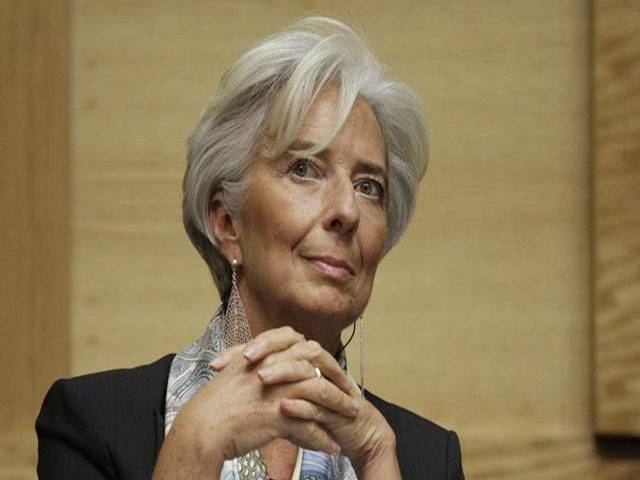WASHINGTON : Christine Lagarde, the International Monetary Fund chief, has withdrawn from delivering her commencement address at a women’s liberal arts college, citing protests against her and the fund that the students call “a primary culprit in the failed developmental policies implanted in some of the world’s poorest countries”.
“This (the Fund’s role) has led directly to the strengthening of imperialist and patriarchal systems that oppress and abuse women worldwide,” said an online petition against Lagarde’s appearance at Smith college.
For years, critics of the IMF have charged that in providing economic aid to poor nations, it has imposed conditions that favour Western nations and businesses, and propped up oppressive governments.
Lagarde’s withdrawal comes after Condoleezza Rice, the former secretary of state, withdrew from speaking at New Jersey’s Rutgers University commencement in the face of protests against her role in Bush administration foreign policy, and weeks after Brandeis University rescinded its invitation to the so-called rights advocate Ayaan Hirsi Ali to receive an honorary degree at its commencement, after protests over her anti-Islam statements.
Such reversals have become more common in recent years, said Greg Lukianoff, president of the Foundation for Individual Rights in Education, referring to this time of year as “disinvitation season.” What has changed is not so much the protests themselves, but the willingness of colleges and speakers to give in, adding that many apparently voluntary withdrawals are made at the college’s urging.
For years, critics of the I.M.F. have charged that in providing economic aid to poor nations, it has imposed conditions that favor Western nations and businesses, and propped up oppressive governments.
In a statement posted online, Kathleen McCartney, the president of Smith, said Ms. Lagarde had told her over the weekend that she would bow out, so that protests would not detract from the celebration. Ruth Simmons, a former president of both Smith and Brown University, has agreed to take Ms. Lagarde’s place.
Ms. McCartney, who is in her first year as Smith’s president, wrote that she and many others had been looking forward to hearing Ms. Lagarde, adding that the protesters had gotten what they wanted, “but at what cost to Smith College?”
“An invitation to speak at a commencement is not an endorsement of all views or policies of an individual or the institution she or he leads,” Ms. McCartney wrote. “Such a test would preclude virtually anyone in public office or position of influence. Moreover, such a test would seem anathema to our core values of free thought and diversity of opinion.”
Last year, in the face of protests, Robert Zoellick, a former World Bank president, Goldman Sachs executive and Bush administration official, withdrew from the Swarthmore College commencement, and Ben Carson, a neurosurgeon and pundit who has spoken against gay marriage and evolution, pulled out of the Johns Hopkins University commencement.
There have been several other cases of rescinded invitations or speaker withdrawals involving campus events less august than graduation, and even more cases of speeches going ahead despite protests.
Most of the incidents have involved complaints from the left, usually aimed at conservative figures, but not all. Last year, Providence College, a Catholic school, withdrew a speaking invitation to John Corvino, a writer and advocate of gay rights.
Tuesday, April 16, 2024
Protesters force IMF chief to cancel speech

Caption: Protesters force IMF chief to cancel speech
Pakistan wants to further enhance cooperation with Saudi Arabia in diverse fields: PM
3:33 PM | April 16, 2024
Pakistan, IMF discussing new multi-billion-dollar program, says Finance Minister Aurangzeb
11:09 AM | April 16, 2024
LESCO ‘bars’ officers from appearing before FIA in overbilling probe
10:49 AM | April 16, 2024
Aleem Khan, Kamran Tessori discuss matters of mutual interests
10:40 AM | April 16, 2024
Israeli Air Force finalizes preparations for possible attack on Iran
8:21 AM | April 16, 2024
Political Reconciliation
April 16, 2024
Pricing Pressures
April 16, 2024
Western Hypocrisy
April 16, 2024
Policing Reforms
April 15, 2024
Storm Safety
April 15, 2024
Democratic harmony
April 16, 2024
Digital dilemma
April 16, 2024
Classroom crisis
April 16, 2024
Bridging gaps
April 16, 2024
Suicide awareness
April 15, 2024
ePaper - Nawaiwaqt
Advertisement
Nawaiwaqt Group | Copyright © 2024





